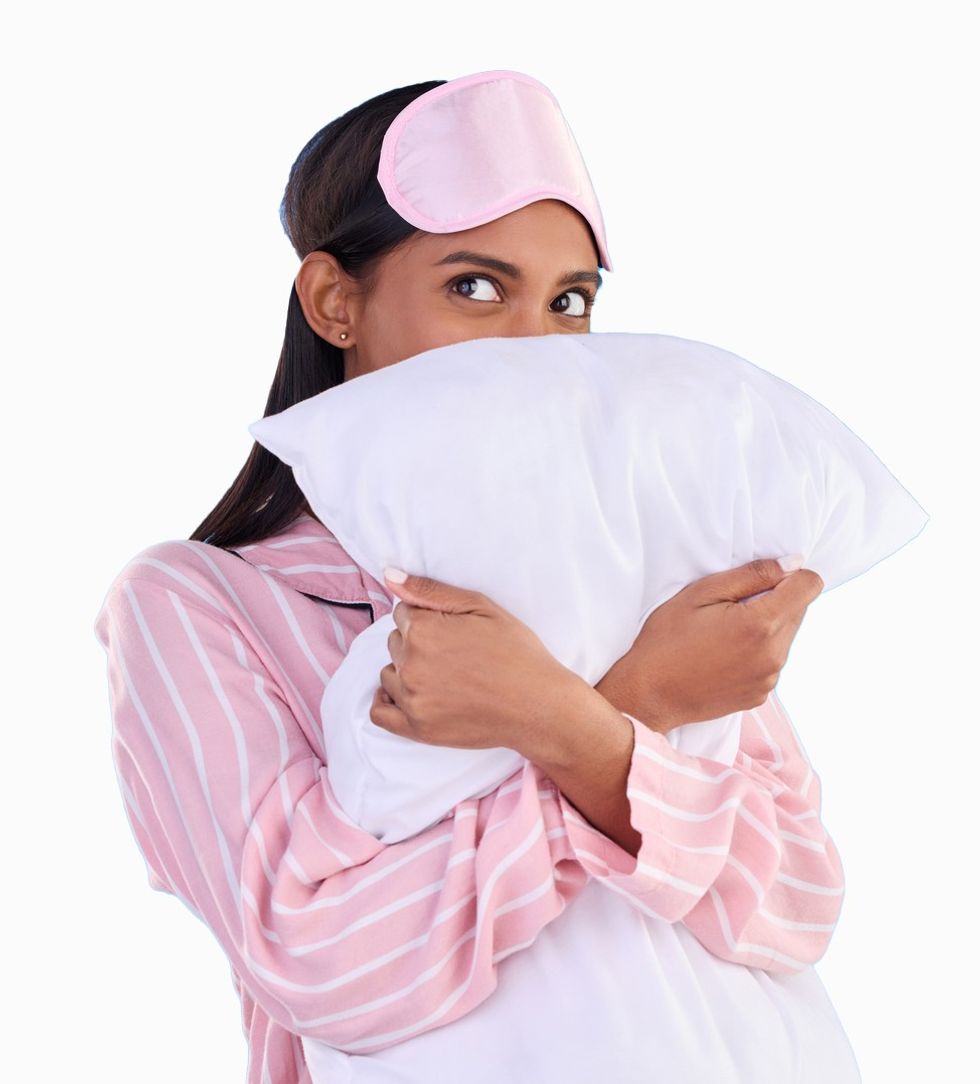QUALITY sleep is essential for mental and physical well-being, as well as overall quality of life.
However, in today’s fast-paced world, many struggle with insomnia and restless nights. World Sleep Day on March 14 celebrated the benefits of a healthy night’s rest, while raising much-needed awareness about an area of life that is perhaps not given enough attention.
With the theme for 2025 being Make Sleep Health a Priority, Eastern Eye has put together top tips to help you achieve a more restful night.
Optimisation: Ensure your environment is conducive to a good night’s sleep. This includes keeping your room at the right temperature, dark, and quiet. Investing in a high-quality mattress and pillows will give your spine the proper support, while good bedding like sheets and blankets will provide added comfort.
Darkness: Avoiding bright lights will not only help you drift off but will also stimulate the production of a sleep-promoting hormone. You can invest in blackout curtains or wear a sleep mask over your eyes.
Calming routine: Create a relaxing routine with calming activities before bed, such as reading, meditation, or a warm bath.Avoid stimulating activities like checking emails, scrolling through social media, or watching intense TV shows. Try disconnecting from screens, like smartphones and laptops, at least an hour before bedtime.
Schedule: Going to bed and waking up at the same time every day helps regulate your body’s internal clock. This consistency strengthens your sleep-wake cycle and promotes better rest. Seven to eight hours of sleep is recommended, along with allowing time before bed to wind down.
Mindful diet: Avoid heavy meals, spicy food, caffeine, and alcohol close to bedtime, as these can disrupt your sleep. It will be difficult to sleep when digesting a large dinner. Instead, opt for lighter snacks such as bananas, almonds, or a warm glass of milk.
Activity: Being active during the day, including exercise, will promote better sleep. Even if it makes you feel tired, avoid intense workouts too close to bedtime.
Manage stress: If work, anxiety, or stress keeps you up at night, consider speaking with a professional or incorporating mindfulness into your daily routine.Practice relaxation techniques such as deep breathing, journaling, and yoga.
Sleep patterns: While short naps can be beneficial, excessive daytime sleeping can make it harder to fall asleep at night. If you need a nap, limit it to 20–30 minutes in the early afternoon.
Light exposure: With social media, streaming sites, working from home, and smartphones, people are spending more time indoors, which can harm sleep. Natural light exposure outdoors during the day helps normalise your circadian rhythm, signalling to your body when it’s time to be awake and when to wind down at night.
Aromatherapy: Essential oils such as lavender, chamomile, and sandalwood can promote relaxation and help ease you into sleep. Try using a diffuser or applying a few drops to your pillow before bed.
Avoid clock-watching: Constantly checking the time when you can’t fall asleep can create stress and make it even harder to drift off. Consider turning the clock away from view or using a non-disruptive alarm.
Avoid sleeping pills: While sleep medications can help in the short term, relying on them can create dependency and mask underlying issues. Focus on improving sleep habits through natural means before turning to pills.
Pet-free: Furry companions can disrupt sleep with their movements, noises, and even smell. Consider having them sleep in their own space to avoid unnecessary disturbances.
Don’t overhydrate: Drinking too much liquid before bedtime can lead to frequent bathroom trips, disrupting your sleep cycle. Balance hydration throughout the day rather than drinking large amounts before bed.
Minimise noise: A quiet space creates a sleep-friendly environment. This can include a snoring partner. Earplugs can help block out distracting sounds.
Stop smoking: Scientific studies have shown that smoking and exposure to second-hand smoke are associated with a range of sleep problems. Nicotine is a known stimulant, so staying away from it will help you get proper rest.
Professional help: If sleep problems persist or worsen, despite positive lifestyle changes, consult a healthcare professional. Chronic sleep issues may be linked to more serious underlying conditions or an anxiety disorder. A professional can provide guidance and proper treatment for any serious issues.
Why sleep is important
Sleep enhances cognitive functions such as memory, problem-solving, and concentration, helping you stay sharp during the day. ■ It improves mood and emotional well-being. A lack of sleep can lead to irritability and increased stress.
■ A well-rested body strengthens the immune system, making it better at fighting infections, diseases, and sickness.
■ Poor sleep has been linked to weight gain and increased appetite, as it disrupts hormones that regulate hunger and metabolism.
■ Sleep helps regulate blood pressure and reduces the risk of heart disease and stroke.
■ Sleeping soundly reduces the risk of chronic conditions, whereas poor sleep is associated with an increased risk of diabetes, hypertension, and other long-term health problems.
■ It enhances physical performance and productivity, helping with problem-solving and decision-making.
■ A good night’s rest helps repair skin cells, reduces signs of aging, and maintains a healthy complexion.
■ Sleep also plays a role in regulating hormones that control growth, stress, and metabolism.

















 Charithra Chandran styled her hair in soft curls for the Ralph Lauren outfitInstagram/
Charithra Chandran styled her hair in soft curls for the Ralph Lauren outfitInstagram/ Charithra’s look was inspired by her character Edwina Sharma from BridgertonInstagram/
Charithra’s look was inspired by her character Edwina Sharma from BridgertonInstagram/

